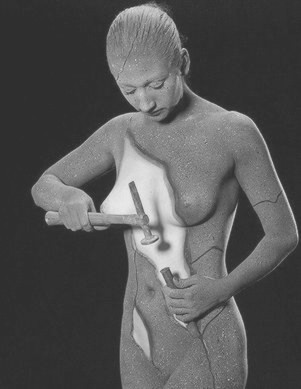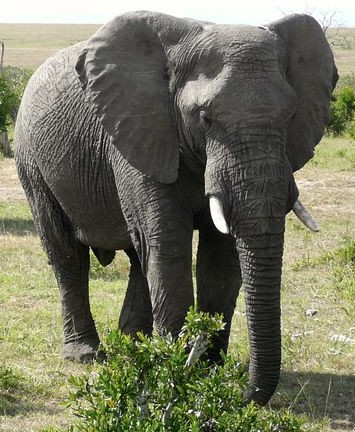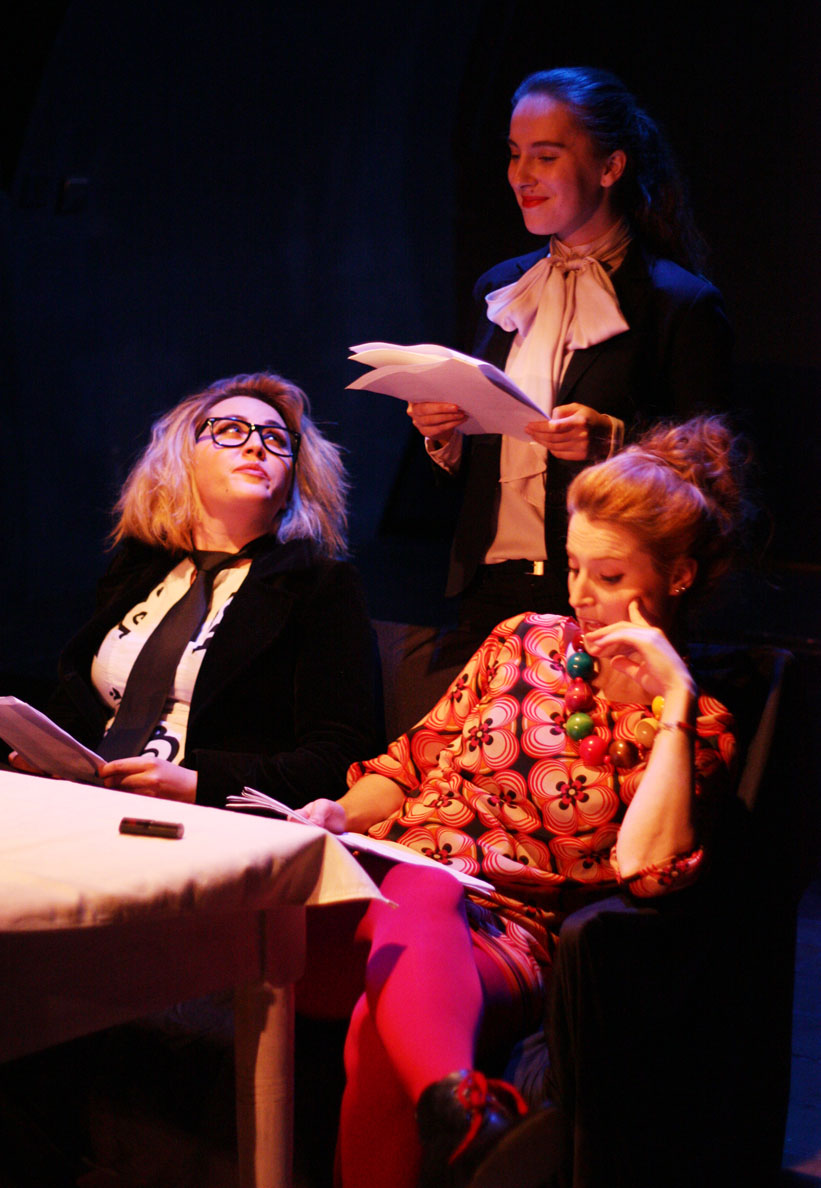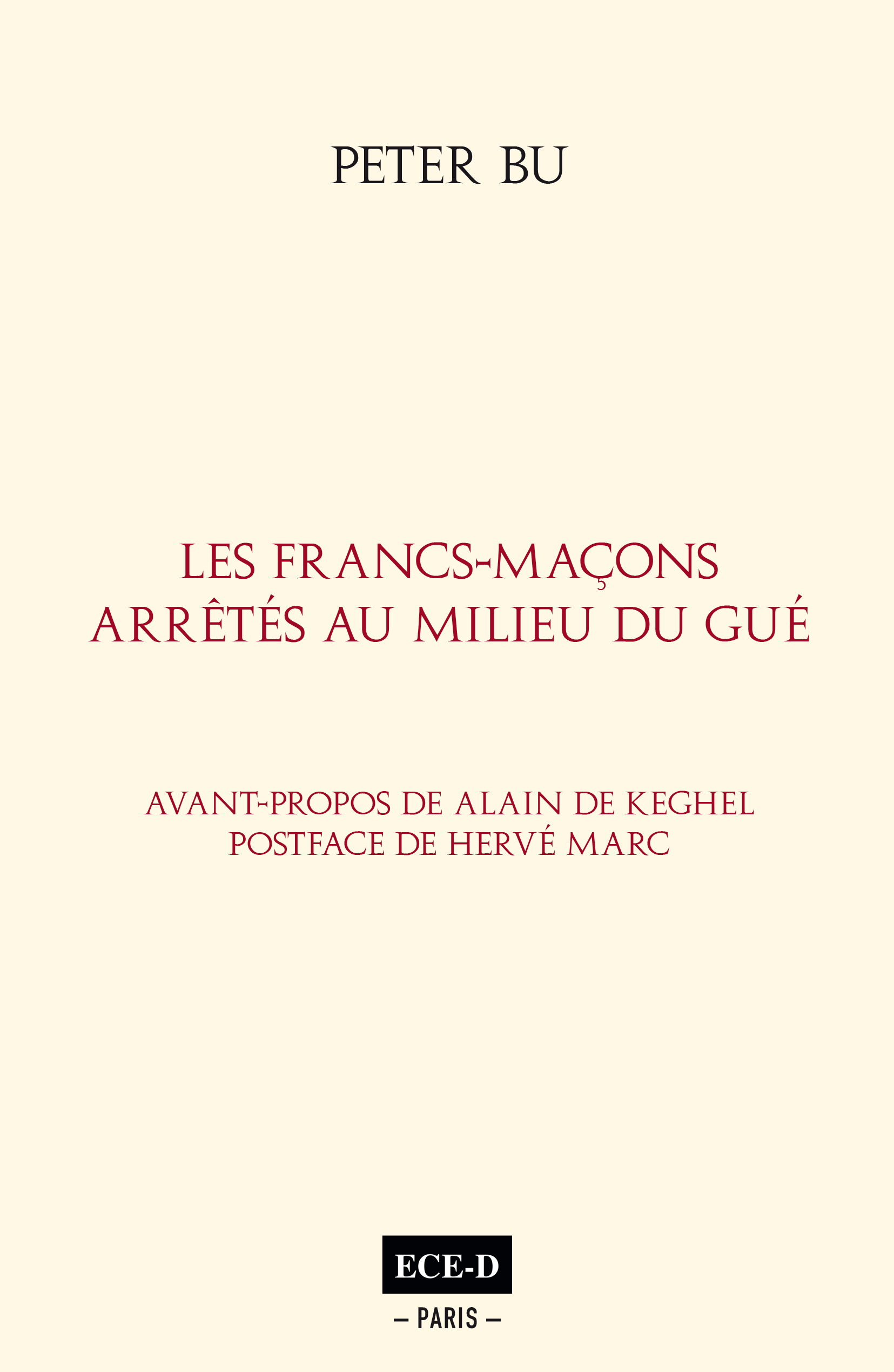(To make a sterile debate fertile)
Published by Masonica No. 26/2010, the journal of the Swiss obedience Alpina and The Chain of Union, Paris, July 2011. Here it is partially modified.
Advocates of admitting women to the Grand Orient of France talk on and on without ever mentioning the underlying reasons for Masonic initiation. They do not differentiate between civil societies and initiation societies. They only discuss social perspectives and policies that might argue in favour of admitting women, and some claim that the masculine character of the GODF (because it does not appear in its statutes) represents an illegal and unenforceable form of discrimination.
This view paints a distorted picture of Freemasonry.
Feminine and Co-Masonry has existed in France for decades and the GODF and most obediences welcome sisters in their columns. (The "columns" are chairs arranged in Masonic meeting rooms.) The societal aspect of the debate is thus rather archaic. The only pertinent question is whether, with regards to the evolution of our society, the meaning of Masonic initiation has changed so profoundly that this must lead organisational and procedural modifications.
Has the world changed enough to require mutual initiation of women and men? The idea has not been ruled out, but it is not certain, either. If this assumption proves true tomorrow, the rites must be changed. The likely need to change our rites for the initiation of women in the GODF and its ''mixed gender'' has never arisen during the discussions, being quite old.

To avoid a circular debate, we must focus on this issue.
1. Historical reasons leading to debate over the initiation of women
The Constitution of 1723 does not admit ''uneducated atheists, women and serfs'' among the ranks of Masons. Written by the Revs. Anderson and Desaguliers, who provided the foundation for modern Freemasonry, this statement may have been justified in the 18th Century but the world has changed and Masonry has evolved, too.
Gender equality is no longer a problem in Britain, France or elsewhere in Europe on the political and social level, at least in theory. Today even the United Grand Lodge of England recognises women, while not welcoming Sisters oi their lodges. Acknowledging equality in social and political rights, along with the right of women to be admitted into Freemasonry, does not imply automatic admission to lodges of initiates of the opposite sex. The view of the UGLE is undoubtedly questionable and it is disputed, but it is defensible so long as we have not demonstrated that separate initiation of women and men is no longer justified, which has almost always been the case in history.
2) Initiation: Why do it?
Traditionally, initiation is the passage from childhood, a time when every child has the impression that the world revolves around him, to an age when a human being must understand that this is not the case and must fit into society.
Initiation enables one to:
- Understand his place in the universe, which implies the metaphysical questions: Who am I? Where am I? What is the origin of the world? If it was created by a ''willingness,'' what is humanity’s relationship to it? Are we separate? Are we a part of it?
- Accept his personality and his destiny, to accept the limitations inherent in the human condition and to confront the idea of his death,
- Learn to take responsibility for his role in society (success depending upon degree of understanding of the questions above).
Initiation is thus a process with psychological (individual), philosophical (metaphysical) and political (whole society) dimensions.
Man is born alone, but grows up with others.
The passage from childhood – ''centre of the world'' – to adulthood is a new birth, a theme of all initiations. The child ''died'' in his old individualistic life, to be reborn into life in a community, which obviously does not mean giving up his own individuality, curiosity and creativity that belongs to childhood. It is about assimilating the dual nature of man, both as an individual and an inseparable part of the communities to which he belongs, and then learning to live harmoniously and simultaneously in both spheres. Man is born alone, but grows up with others and eventually dissolves into his descendants, into humanity, or, if he is a believer, joins his or her gods.
This change is complex, difficult and painful, and can be mastered only through reasoning. That is why a Masonic initiation, like all traditional initiations, is not only a time of teaching, but above all, an individual life experience. Initiatory rites and symbols represent the transformation of a human ''caterpillar'' into a ''butterfly'' in ways that involve both the intellect and all of the senses. It always plays a dual role: testing the aspirant’s ability to adjust to life in society (not only as a passive individual who submits, but as an active member who will act in the common interest) and helping him understand the universe. In primitive societies initiation may sometimes be violent because it serves to test adolescents’ chances of survival in a hostile environment. In Masonry, initiation is symbolic because today, adaptation no longer necessarily requires physical strength or great courage.
Freemasonry, the last Western initiatory society, is open only to adults. Given the expansion of our ''village'' to the entire world and the complexity of our world, it currently accepts all civilisations and is an aggregate of humanity, not just groups on a smaller scale. (It is no coincidence that modern Masonry was founded after The Renaissance, during the Age of Enlightenment when the West discovered the planetary scale of humanity and the interconnectedness of all life forms.)
Brotherhood is not always Love
Brotherhood = always visceral interdependence
Masonic fraternity = universal brotherhood
Universal brotherhood = universal interdependence =
= humanistic ecology
Compared to previous periods, the scope of initiation has grown. It does not end with adolescence, but takes years, if not a lifetime. In bringing us from time to time, with successive and evolving initiations, in the situation of teenagers, Freemasonry reminds us that we are eternal "apprentices".
Some argue that women need not be initiated
Some ancestral societies initiated only men but there were others who believed it was just as important to initiate women. What are the underlying reasons for such segregation?
It is sometimes argued that women need not be initiated because, through their ability to bear children, they know they are both ''one'' and ''many.'' A mother is physically and psychologically ''bonded'' to her child, a being other than herself. If this innate understanding (sometimes an understanding acquired during pregnancy, and for some women, only after a difficult battle with themselves) of human bipolarity inherent to women can, at best, seem adequate in societies where women remain confined to their families and circle of daughters and mothers, such a ''biological'' initiation is no longer enough in today's world, where women perform the same tasks as men – and are asking the same questions about their place in the world and the cosmos. As they participate in the management of our societies, they must be initiated, even if initiation procedures take account of their difference. The initiation of the first women in the late 19th Century supports this conviction.
3) Co-Masonry
Does this mean that all Masonic obediences must initiate women and/or that all must become ''mixed''?
The first argument of defenders of women's GODF initiation is gender equality, which is no longer questioned, at least in theory. The debate therefore would not take place if no feminine or Co-Masonry obediences existed alongside masculine Masonry. Fortunately, this is not the case. They do exist and are doing well and are recognised by masculine Freemasons, and communicate with them.
Some Brothers advocate women’s admission to the GODF on behalf of Masonic universalism. They wonder how could their obedience be ''universal'' if it did not admit ''half of humanity'' to its membership.But if Freemasonry is universal, it does not claim to unite all humans within it. This is contrary to its philosophical foundation and working methods. While promoting brotherhood for all, it selects its members and has never assumed that all men and women should be included. Freemasonry is not like monotheistic religions or political parties that envision the salvation of humans only if they convert them and encompass.

Similar reasoning argues "Men cannot deny half of humanity the right to speak," or "men cannot avoid listening to half of humanity."
On the one hand, no more than men who do not belong to our movement, women need not be present between our pillars to express themselves or to be heard. Freemasonry does not exist in a closed circuit by looking only to itself. On the other hand, the Grand Orient or Grand Lodges are not alone in their exclusivity of giving or not the right to speak. Women, initiated or not, or other ''secular'' people did not wait our permission to speak. And on this point, what will the presence of a few Sisters in our lodges change? They cannot claim, any more than ourselves, to speak for all women, who are entitled to speak for themselves.
In this case, although they share our Universalist philosophy, why are our Sisters from feminine obediences not raising these kinds of questions? Why are they not asking us to initiate them? And would we?
For example, the Grand Women's Lodge of France does not view the GODF’s masculine character as contemptuous towards women and steadfastly refuses initiation of women in this obedience. Our Sisters want to preserve feminine Masonry because they appreciate the opportunity to meet in lodges as mere human beings, without thinking about their role as daughters, wives and mothers, without worrying about seduction, being happy to momentarily forget the domination they witness within companies, political parties and other secular groups, or even their own families. (See the Senate inquiry on Co-Masonry obediences, reported in the journal Humanism, Paris, No. 67/2004.) We can only respect their choice.
In the lodge, our Sisters want to escape games of seduction for a time. And as for us men? For us, the gender relations issue does not emerge in quite the same way (more reason to respect the views of the GLFF), but it still is a factor to take into account. No one will deny that the most men’s attention is very biased towards the conquest of women, and so when they turn in that direction, it restricts their freedom to think about other subjects. According to biologists conducting research on the brain, men, unlike women, only know how to do one thing at a time... Wouldn’t that also be a "metal" to leave outside the Temple, at least from time to time?
Our Sisters in women’s’ obediences are not seeking to merge into men’s obediences
At most, they request the same rights to visit that they generally grant us to their lodges. Conversely, most GODF lodges that are free to do so open their doors. Yet they are not bombarded with visitors who, moreover, rarely intervene in their debates. They have the right to do so, but for the most part seem to prefer simply observing our manner of seeing. Conversely, women like to be able to develop their own worldview within their lodges based on their specific experiences.
The motivations of the Sisters who want to keep their obediences women-only are not very different from the majority of Brothers who have opted for a men-only obedience, instead of seeking initiation in a Co-Masonry lodge.
Men and women are equal without being identical. They are made to live together. But to succeed fully, each must first affirm his personality in its individuality. Living together does not imply renouncing oneself. Just look around you to be convinced that women sometimes need to be with other women and men together with other men.
It is very inspiring to study and compare the work of male lodges, women's lodges and mixed lodges, something that ''liberal'' Masonry not only tolerates but encourages. Uniformity would deprive us of this wealth.
4 The future
It is possible that the evolution of women and men converges, and one day, maybe tomorrow, they will need to be initiated together. Will this be a shared initiation in its entirety, or only partial (as might occur in some people where preparations for the sex lives of boys and girls take place at the end of the process)? Given that modern Freemasonry is destined for adults who have already experienced their sexual initiation, the question does not arise in this way (what a pity!...), but that does not mean it wouldn’t be useful to create rites that devote part of initiation to men and women together, to achieve better mutual understanding and a more peaceful coexistence.
To conclude, the ongoing GODF debate on Co-Masonry lodges is based on premises that seem logical, but may as well rest on ideological prejudices or ulterior subconscious motives. Study of this issue should focus on its initiatory dimension rather than on societal issues. Curiously no one is trying to explain the reasons for this.
If you differ from me, my Brother, far from hurting me, you enrich me, wrote Saint-Exupery. It would be a pity to deprive us of the ''open'' Masonry diversity.
1 + 1 = 3 or 5 or 7...
Peter Bu
N.B.: All the stupidities about women, Toutes ces âneries sur les femmes: if you can read french... , si vous lisez le français, vous pouvez aussi voir mon autre site www.aneries-sur-les-femmes.fr

http://modern-freemasonry.com was created to promote the free exchange of ideas on Freemasonry.
This free-flow of ideas was prevented by 50,000 contributions that had nothing to do with Freemasonry, wanting only to use this site for advertising.
I've cleared all this pollution to enable relevant conversation to resume.
Thanks in advance for your thoughts in the FORUM on topics that interest the Freemasons.






